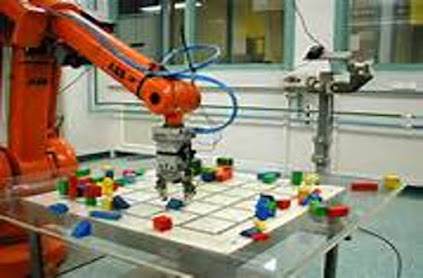Robotics & Electronic Circuits
ROBOTICS
Robotics is the branch of technology that deals with the design, construction, operation, structural disposition, manufacture, and application of Robots.
Robotics is related to the sciences of electronics, engineering, mechanics, and software
The word robotics was first used in print by Isaac Asimov, in his science fiction short story "Liar!", published in May 1941.
ROBOTS
A robot is a mechanical intelligent agent which can perform tasks on its own, or with assistance.
In practice, a robot is usually an electro-mechanical machine which is guided by computer and electronic programming. Robots can be autonomous or semi-autonomous.
Get here the Marine Electronics Book where you can find all the information on this and many other topics.
ROBOTS COMPONENTS
Mechanical part or manipulator (Body, Arm, Wrist).
End effector (Tool or Gripper).
Actuators (pneumatic, hydraulic, electric)
Controller (Sensors, Processor)
Power supply
Vehicle (optional).
A robot is a collection of components.
A component is a device that contains input devices, output devices, logic hardware, and other components.
Logic hardware communicates with input and output devices for simple tasks.
Autonomous Robots
Fully autonomous robots only appeared in the second half of the 20th century.
The first digitally operated and programmable robot, the Unimate, was installed in 1961 to lift hot pieces of metal from a die casting machine and stack them.
Learn more in the following video
MOBILE ROBOTS
Mobile robots have the capability to move around in their environment and are not fixed to one physical location.
An example of a mobile robot that is in common use today is the automated guided vehicle or automatic guided vehicle (AGV). An AGV is a mobile robot that follows markers or wires on the floor or uses vision or lasers.
MILITARY ROBOTS
One robot, in particular, the EATR, has generated concerns over its fuel source as it can continually refuel itself using organic substances. Although the engine for the EATR is designed to run on biomass and vegetation specifically selected by its sensors which can find on battlefields or other local environments the project has stated that chicken fat can also be used.
Learn more about Marine Technical Training at www.mttedu.org












Comments
Post a Comment